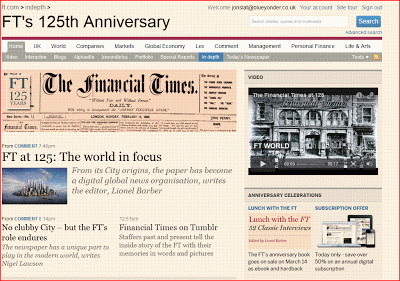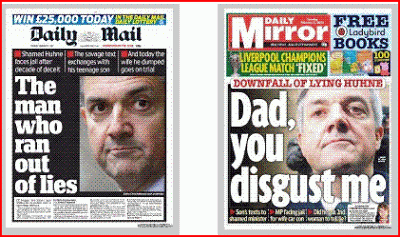Many of the meetings that followed the Leveson Report were "lofty" gatherings in which media academics and pundits were more interested in doing something about the popular press rather than preserving the freedom of all the press, according to Professor Peter Cole, the ex-editor of the
Sunday Correspondent and former head of journalism at both Sheffield University
and
UCLAN.
Professor Cole, one of the contributors to
After Leveson? The Future of British Journalism, edited by John Mair, writes:
"From the moment the Leveson Inquiry was
set up there emerged a small industry of journalist navel-gazers, media
pundits, columnists, broadcasters and
reporters, editors with a reputation for playing a part in wider media debates,
media
lawyers and the journalism lecturers and researchers, with and without a
professional journalism past (known as the ‘hackademics’!). Whither
journalism? debates were held up and down the land.
Cole says: "There
followed very many meetings organised by campaigning groups and
university media and journalism departments. There were meetings of
major media figures (some requiring payment from the public to attend),
which tended to feature a regular repertory company of pundits some of
whom appeared on a succession of platforms.
"The meetings
were frequently lofty, seldom including representation (of advocates or
views) from the popular press which was at the heart of the Leveson
inquiry. The ‘hackademics’ seemed often to be the most detached from the
real commercial world, some giving the impression that all would be
well if the
Guardian was the only newspaper on sale, distaste for the
Daily Mail and all things Murdoch seemingly a badge of office.
Cole adds: "While
there was an impressive core at the heart of the repertory company,
mostly of former senior media executives (journalists and lawyers) who
had had experience of and thought seriously about regulation and
press freedom, too often those who spoke up in the debates appeared to
have a low opinion of journalism in general rather than a respect for
its watchdog role and its achievements in flushing out the corrupt and
the abusers of power, not always the most straightforward or squeaky
clean activity.
"And they did not like to pollute their
idealism with commercial considerations, like the fact that newspapers
need to make money to exist. Too often the emphasis at these meetings
was
doing something about the popular press rather than preserving the freedoms of all the press.
"After all, if the police investigations had uncovered the extent of illegal phone hacking when it was first brought to their attention there would have been no need for Leveson. As it is, those areas of the press that have behaved disreputably and despicably have been so shamed by the evidence given to the Inquiry that such behaviour should not recur."
Some other quotes from After Leveson?:
Leveson's impact on the Regional Press
Tor Clark, of De Montfort University: "The injustice of being kept behind after school because the naughty boys from the nationals misbehaved, the UK regional press has little to fear from tougher regulation because it is unlikely to be a major offender and if Leveson’s comments about the value of local journalism do hit home, as they appear to have done for some MPs already, Leveson’s impact is at worst neutral to the regional press and at best doubly positive in allowing it to be lauded as a responsible media while having overdue light shone on its positive role and current plight."
Paul Marsden, of Coventry University: "For the moment it appears pragmatism is the order of the day in government ranks. Looking forward to a difficult General Election in 2015 it appears the
Conservative Party is more pre-occupied with staying in bed with the national press than assisting their local relatives out of their hospices."
Why journalism should consider itself a profession
Richard Sambrook of the Cardiff University Centre for Journalism: "In rejecting the notion of 'professionalism' along with statutory regulation newspapers may do themselves a disservice. ‘Rat-like cunning a plausible manner and a little literary ability’ may have been sufficient fifty years ago. Today’s media, transformed in scale reach and influence, requires a different approach. A 24 hour global, converged media, undergoing rapid change, dealing with a constant deluge of information, and exerting huge influence over all our lives, should not be hesitant about calling itself a profession. It requires consistent editorial discipline and skills supported by industry-focused training and continuous development – to raise standards, establish an ethical culture, build public trust and raise morale. And perhaps in so doing, to secure a stronger long-term future."
Dave will do a deal
Media commentator Ray Snoddy:"However shrill the Hacked Off campaign gets, the political realities suggest a deal will be done by David Cameron, with the support of senior Cabinet ministers such as Education secretary Michael Gove, Foreign Secretary William Hague and the press barons."
- After Leveson?, The Future of British Journalism, edited by John Mair, is published today (February 26) by Abramis at £19:95.


















